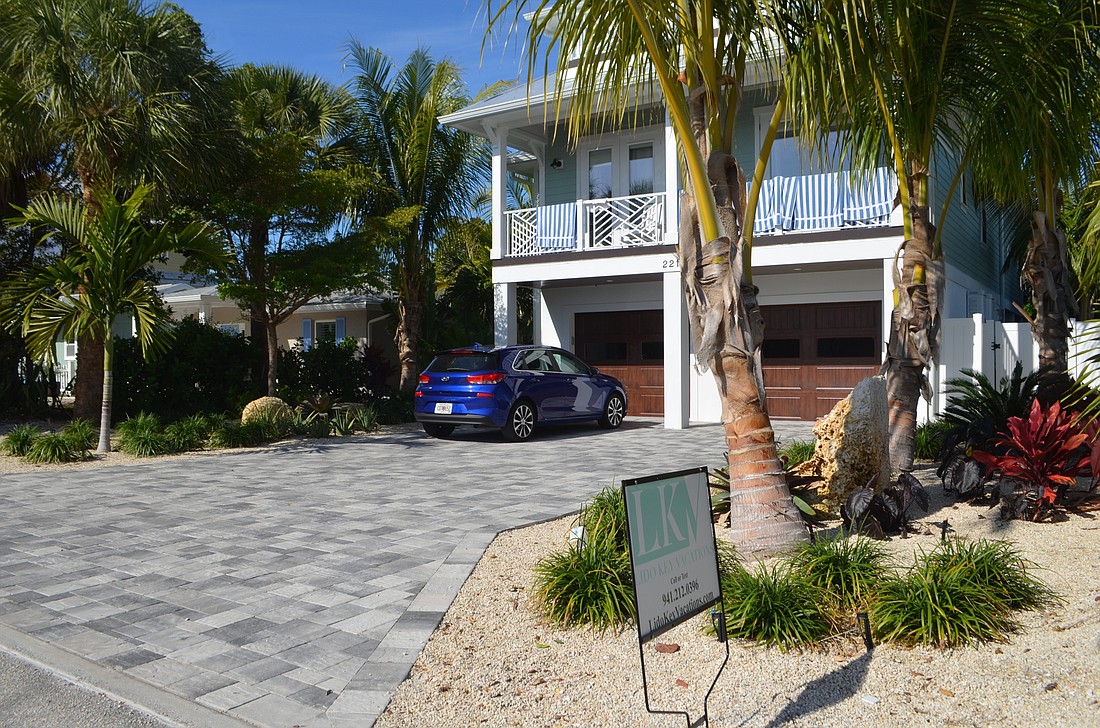- July 22, 2025
-
-
Loading

Loading

For the past year, residents on St. Armands and Lido keys have sounded alarms about issues with large vacation rental properties in their neighborhoods.
Next week, the City Commission is poised to take action on regulations designed to address residents’ concerns. Chris Goglia, the president of the St. Armands Residents Association, sees this as a pivotal moment regarding the future of “hotel houses” — the moniker the neighborhood has given to big homes listed on rental platforms, such as Airbnb.
“If it isn’t stopped, this thing is going to forever change the city’s barrier island neighborhoods,” Goglia said.
The city will consider an ordinance containing a package of rules related to hotel houses at Tuesday’s commission meeting. The ordinance would establish a maximum occupancy of 10 individuals at any home used as a vacation rental, though that regulation would be phased in over the course of several years for properties that are currently operating lawfully. The ordinance would also require owners of all vacation rental properties to register with the city annually.
The scope of the ordinance is subject to revision based on the commission’s input at Tuesday’s meeting — if officials decide to move forward with the proposal at all. In a memo, City Attorney Robert Fournier shares a list of six major questions associated with the regulations as drafted. Those questions include which areas of the city the ordinance should cover and whether the 10-person maximum occupancy is ideal.
Additionally, Fournier asks whether the City Commission wants to prioritize the adoption of a vacation rental ordinance when it’s possible the state could overrule any local rules during this year’s legislative session.
Goglia said it’s essential for the city to move forward now, regardless of what the legislature might do. He notes that residents have been complaining about issues at vacation rentals in their neighborhoods for more than a year, stating the homes create excessive noise and other issues detrimental to quality of life in the area. The neighborhood believes these homes, which advertise the ability to accommodate upward of 20 guests, violate the city’s definition of household living.
Goglia is hopeful the city will allow the neighborhood to guide any revisions to the ordinance. He pointed out one example where residents would like to see a change to the proposal: As written, the rules would apply only to single-family neighborhoods, but Goglia said many of the large rental homes on Lido Key are in areas zoned as multifamily.
“If the basic justification for adoption of the ordinance is essentially the preservation of the stability of single-family residential neighborhoods, this ultimately seemed to me to be the preferable approach, since presumably the city is less concerned about preserving single-family neighborhoods in areas zoned multiple family,” Fournier wrote in the memo.
Goglia said the vacation rentals can affect a residential area regardless of the zoning.
Fournier said the residents aren’t the only people with thoughts on the ordinance. The city attorney met with Lido Key Vacations, which operates 10 vacation rentals on the city’s barrier islands. The group shared the measures it takes to avoid noise or trash issues, and it encouraged the city not to establish onerous regulations.
Although there are some unanswered questions about what the final language will look like, the St. Armands Circle Association is supportive of moving forward with the ordinance. Goglia was optimistic the regulations would be easier to enforce than standards for household living, defined as no more than four unrelated persons in a single residence.
“It might be hard to say, ‘This group is a family; this one is not,’” Goglia said. “It should be much easier to count the number of persons on the premises of a vacation rental.”